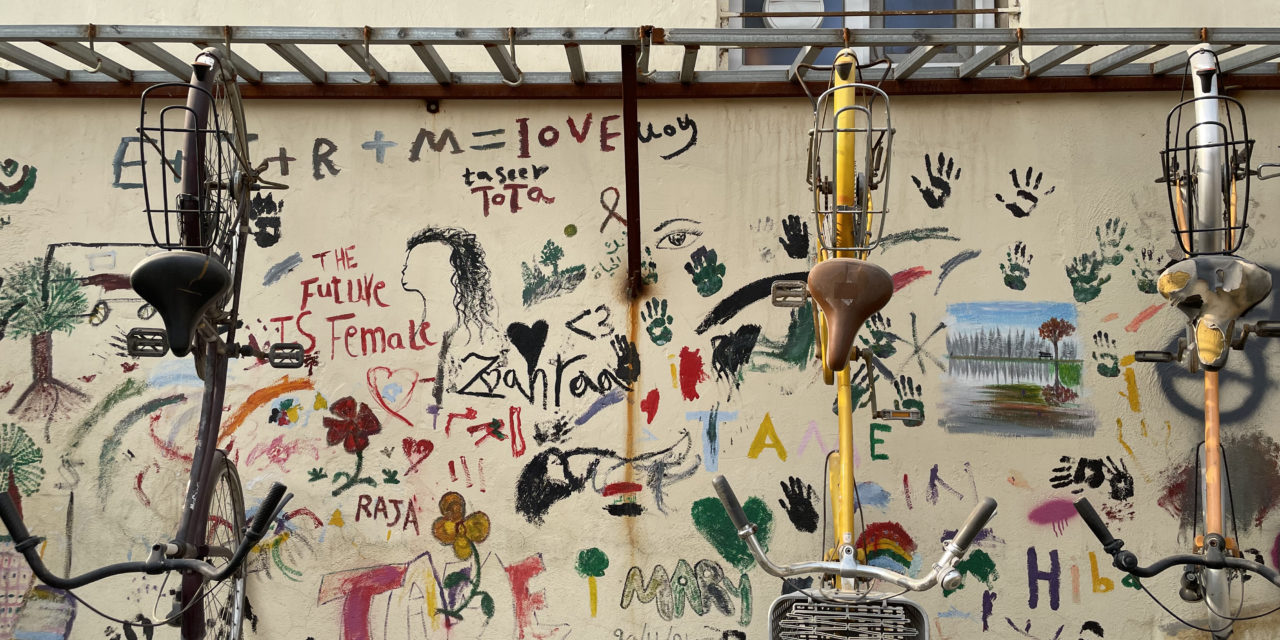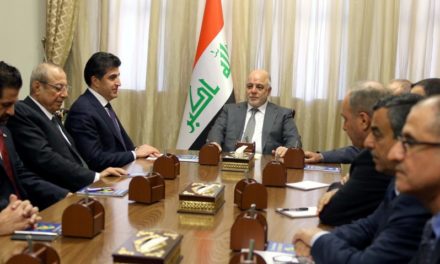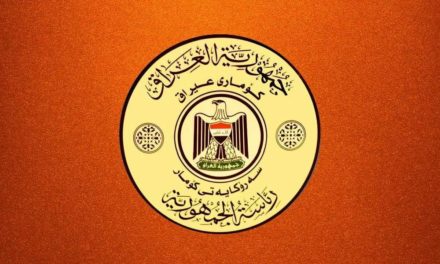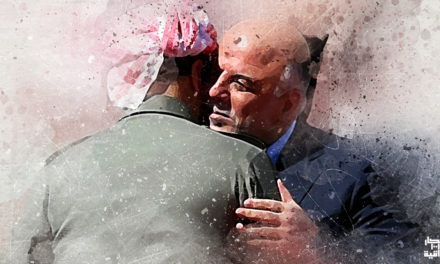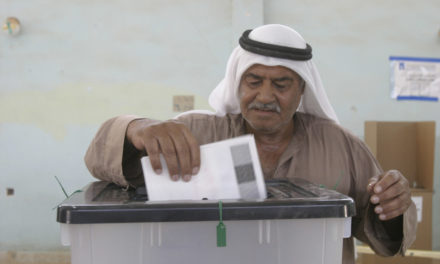I spent a portion of my professional journey as a political activist following the developments of Iraqi civil society in the 20 years since the American invasion. During that time, I spoke to many young women like me, who hold memories of their childhoods during Saddam Hussein’s rule and are now living under the rule of Saddam’s opponents. During both regimes, many were not able attend to their studies. Under Saddam, the government carefully regulated and controlled centers of knowledge. However, in the present day, even though there is oftentimes more space to talk, women’s issues and women’s political participation are considered secondary political issues. During both regimes, women’s political participation was limited. Therefore, who is left to pay attention to this generation of young Iraqi women?
During my activism and as part of my work, I conducted many meetings and discussions with young women in Iraq. I tried to understand and interpret the gender gap in Iraqi political life. What were the challenges that young Iraqi women faced in accomplishing their political aims in a country destroyed by war, sanctions, foreign incursions, and internal conflict?
Today women constitute 49% of Iraq’s population. Regime change after 2003 and the violent events that followed led to an increase in violence against women, as women are always the first victim.
It is easy for researchers and think tanks to be drawn to focusing on analyzing the political elite, the highest levels of power and government. As a result, young Iraqi women do not receive this much focus, despite the role they play as drivers in social and political life.
In this article, I try to provide an interpretation of a new type of civil society, through which young women lead groups and organizations to achieve political goals, with a focus on bridging the gender gap in Iraqi political life.
Generational or Identity Differences?
The post-invasion attempts by the United States and the United Kingdom to restructure Iraq entrenched sectarian politics in the country. It empowered ethno-sectarian parties and made it impossible for anyone to rise in government ranks without being a member of one of these parties. This was no different for women.
I recall that I worked for years on trying to strengthen the channels of communication between young women and female politicians in the government and the Council of Representatives. My goal was to spark discussion and dialogue and to build a bridge between young women and women in power from older generations. However, in reality, the only constant was that the generational difference was the theme of these attempts.
I came to understand through this work that many young women in Iraq believed that political women who have held executive and legislative positions do not meet their expectations and are not responsive to the needs of Iraqi women. Most of the young women speak of a generational gap and of different agendas. Young Iraqi women are fighting to change the rules of a game that was set by women from political parties.
These younger women have a more inclusive and collective identity. They uphold slogans like “a woman’s voice is a revolution”, “be a revolutionary, the revolution is a female”, “we want a homeland”, and “Baghdad will not be Kandahar!”. By contrast, women who are of an older generation appear to be closer to sectarian identities and to the agendas of the men in their political parties.
Young Iraqi women see the political class as largely discredited. They view their policies as ineffective, unpopular, and unresponsive to the needs of Iraqi women.
The Gender Gap in Political Participation
I lead an initiative that I named “Women in Politics”, which aims to raise awareness and promote activism on bridging the gender gap in Iraqi politics. I do this through my work in Sasa, a civil society organization dedicated to promoting youth political participation in Iraq. This initiative tries to understand the presence of women and men in political life and to examine the root causes of political gender gaps. It also tries to measure the political gender gap and its causes, focusing on inequality and unequal treatment between men and women.
In my view, young women are adapting to address gender gaps. One form of this adaptation is for young women to establish political organizations and not political parties. Rather, they are organizations with goals and activities of a political nature. This is one of the adaptive transformations of Iraqi civil society. Most of the young women I interviewed say that they aspire to transform this experience into a political party in the future, but the main obstacle is the financial cost of establishing a party. This creates a gap in women’s participation in civil society where they are over-represented in contrast to their participation in political life.
Tishreen: A Turning Point for Young Iraqi Women
When Iraqis went to the protest squares in October 2019 to protest corruption, repression, poverty, marginalization, and unemployment, it was a new turning point in the history of popular uprisings in Iraq. One of the clearest markers of this transformation was the participation of women from different groups and ages, a clear challenge to the hegemony of the patriarchy and to the marginalization of Iraqi women in society.
The presence of women in the October protest movement challenged the masculine character that was dominant in the protests. The historically unprecedented participation of Iraqi women in protests raised many questions about the nature, goals, and outcomes of women’s active participation in Iraq.
Many of the young women I interviewed believe that the events of October 2019 motivated them to participate politically and crystallized their political awareness about their position in a country that has been dominated by a legacy of war for the last 20 years.
The first popular movement led by young women in recent years was the “Banatak ya Watan” or “Your daughters, Homeland” movement, which is a young women’s march led mostly by university students. This was a response to the statement of Sadrist leader, Muqtada Al-Sadr to separate the genders and not to mix women and men in protests, when women were accused of committing acts that went beyond society’s expectations of them.
The distinguishing feature of the protests was the size and quality of young women’s participation. Today, young women’s organizations are more visible in society.
From Tishreen to the Elections and from Protest Participation to Political Participation
The Tishreen protests led to the organization of women’s participation in the political arena. This started with unifying efforts in civil society spaces and influential non-governmental spaces. This then led to the change in the electoral system to one that was more supportive of women’s participation in an equitable manner, which resulted in the rise of young women and women in parliament. The new female parliamentarians are more representative of Iraqi women in their different age groups and different political leanings.
In Summary
Through dialogues, meetings, and observations, I found a gender age gap between young women and veteran feminists. There were also differences in the form of political activism and the structure of organizations that women of each generation establish. While veteran feminists focus on civic participation, young women focus on political participation. This intersectionality is an important method of feminist studies and women’s studies. The latter form of organization should receive wider attention because of its importance and because of the hope for change it provides.
The main obstacle for this development in young women’s organizing is that it often collides with challenges of male dominance in politics and society, and this is reflected in the lack of equality between men and women. The culture of political institutions in Iraq is more like an exclusive club for men, lacking democratic practices. Even the party, the family, and work environment do not support women’s political participation. These factors contributed to preventing opportunities for women’s participation in legislative and executive politics, as well as preventing women’s presence in political spaces more broadly.
This essay is part of a special series – Iraq after 2003: The Voices of Iraqi Women
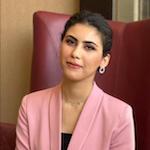
Nour Alhuda Saad
Nour Alhuda Saad is a political activist and the founder of Sasa organization. She is also a researcher with interests in political developments in Iraq and thematic expertise in political feminism, youth inclusion, protest movements and youth political participation.

